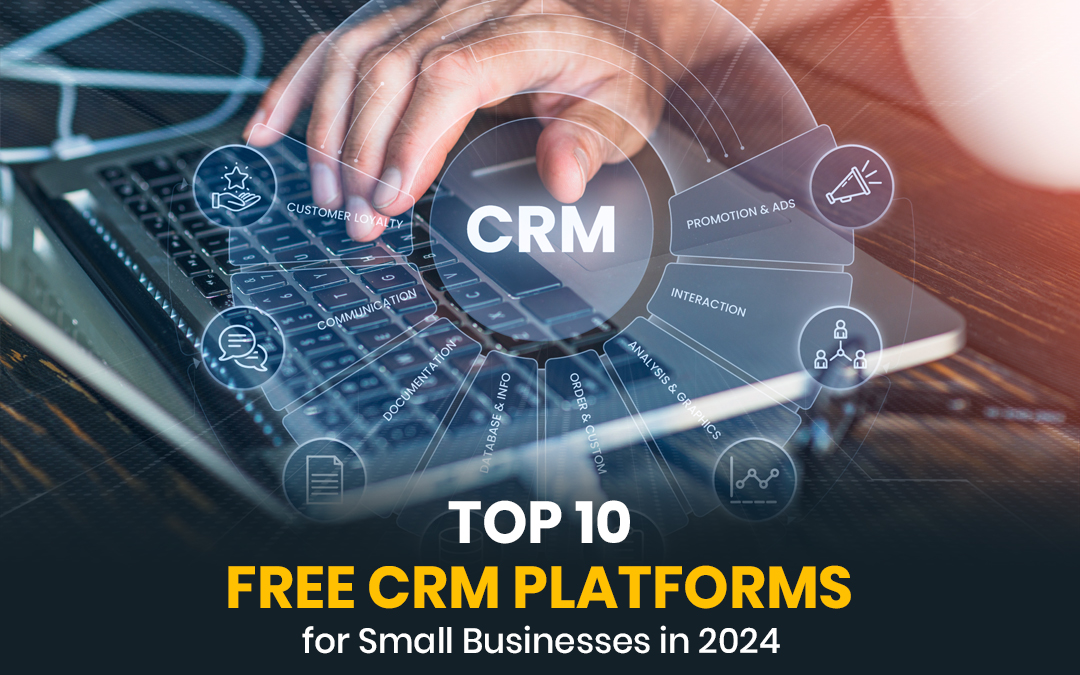
In today’s competitive business environment, Customer Relationship Management (CRM) systems are indispensable to manage and nurture customer relationships effectively. Today, 91 percent of companies with more than 10 employees use a CRM system. CRMs help businesses track interactions, manage leads, and automate tasks, improving overall efficiency and boosting sales by up to 29%, according to recent studies.
What is CRM?
CRM refers to the technology, tools, and strategies that businesses use to manage and analyze customer interactions throughout the customer lifecycle. The primary goal of CRM is to enhance business relationships, streamline processes, and improve profitability by fostering better customer service and retention.
At its core, a CRM system consolidates customer data—such as contact details, interaction history, purchase records, and preferences—into a centralized platform. This helps businesses track their customer interactions more effectively, manage leads, streamline workflows, and provide more personalized experiences to their clients.
CRM platforms are used to:
- Manage Contacts: Keep track of customer information, including emails, phone numbers, social media profiles, and more.
- Track Sales Leads: Monitor sales activities, pipeline stages, and potential revenue.
- Automate Marketing: Send targeted email campaigns, manage social media interactions, and track customer engagement.
- Enhance Customer Service: Provide detailed customer histories to resolve issues quickly and improve overall service experiences.
Why is CRM Important for Your Business?
Whether you run a small business or a large enterprise, implementing a CRM system offers several critical benefits. Here’s why having a CRM is essential for your business:
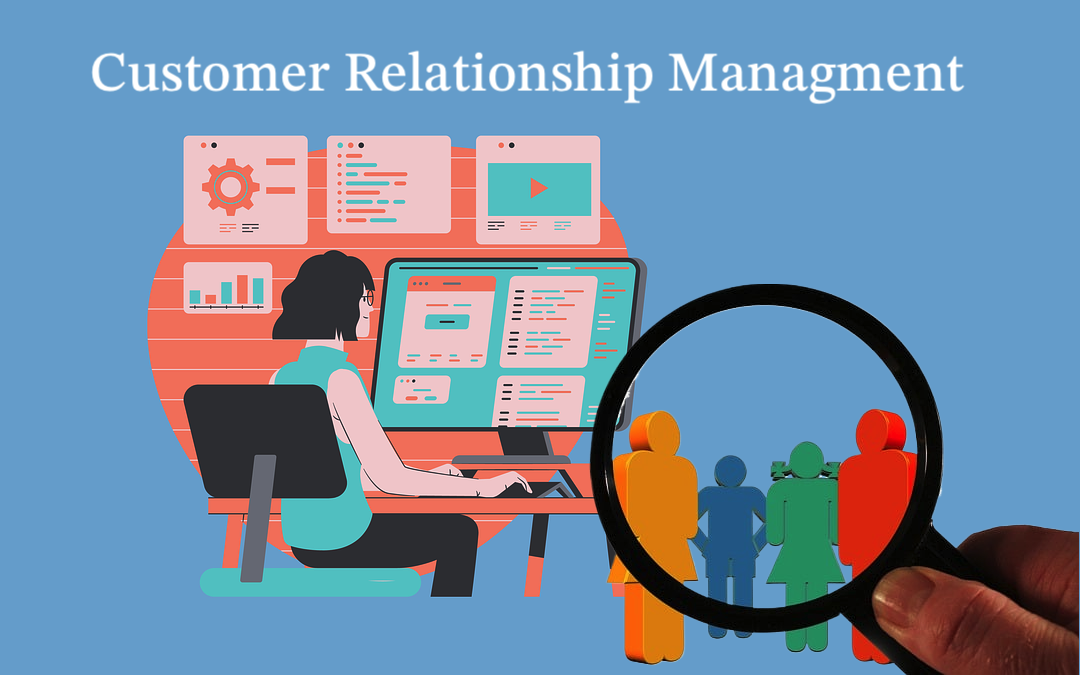
Better Organization and Efficiency
CRM systems centralize all customer data, making it easy for teams to access relevant information in real time. This organization reduces the risk of miscommunication, forgotten tasks, or missed opportunities. Employees can view all interactions with a customer in one place, allowing for more coordinated responses and task management.
Improved Customer Relationships
A CRM helps businesses develop deeper, more meaningful relationships with their customers. By tracking customer interactions and personalizing communication based on past behavior, businesses can build loyalty and increase customer satisfaction. CRM systems allow you to understand customer needs and preferences, leading to more relevant and timely communication.
Boost in Sales and Revenue
CRM platforms streamline the sales process by organizing leads, tracking customer interactions, and automating follow-ups. This helps sales teams prioritize their efforts and focus on the most promising leads. With better visibility into the sales pipeline, businesses can make informed decisions, close deals faster, and ultimately increase revenue.
Enhanced Customer Service
With access to detailed customer profiles and histories, service teams can resolve issues more efficiently. A CRM system helps agents provide more personalized and informed responses, improving the overall customer service experience. Quick issue resolution leads to higher customer satisfaction and loyalty.
Data-Driven Decision Making
CRMs provide powerful analytics and reporting tools that allow businesses to gain valuable insights from customer data. By tracking performance metrics—such as sales trends, customer behavior, and campaign effectiveness—businesses can make data-driven decisions, optimize strategies, and continuously improve their operations.
Automation of Repetitive Tasks
CRM systems automate many manual tasks, such as data entry, follow-up emails, and lead nurturing. By automating these processes, teams can save time and focus on higher-priority tasks, like closing deals and engaging with customers. Automation also reduces the chance of human error and ensures tasks are completed consistently.
Scalability for Growing Businesses
As your business grows, a CRM system grows with you. CRMs provide a scalable solution that can handle increasing customer data, sales, and service demands. Whether you have 10 customers or 10,000, a CRM system can manage your customer interactions, ensuring smooth operations and continued growth.
Top 10 Most Popular Free CRM Platforms
While premium CRMs offer advanced features, many free CRM platforms provide robust functionalities ideal for small and medium-sized businesses, which can see an increase in productivity by up to 34% after CRM adoption. Here’s a look at the top 10 most popular free CRM platforms.
1. HubSpot CRM
HubSpot CRM is one of the most popular free CRM platforms on the market, offering a range of tools for managing contacts, tracking sales, and automating marketing tasks. It is ideal for small businesses as it provides unlimited users and 1 million contacts, making it a highly scalable solution.
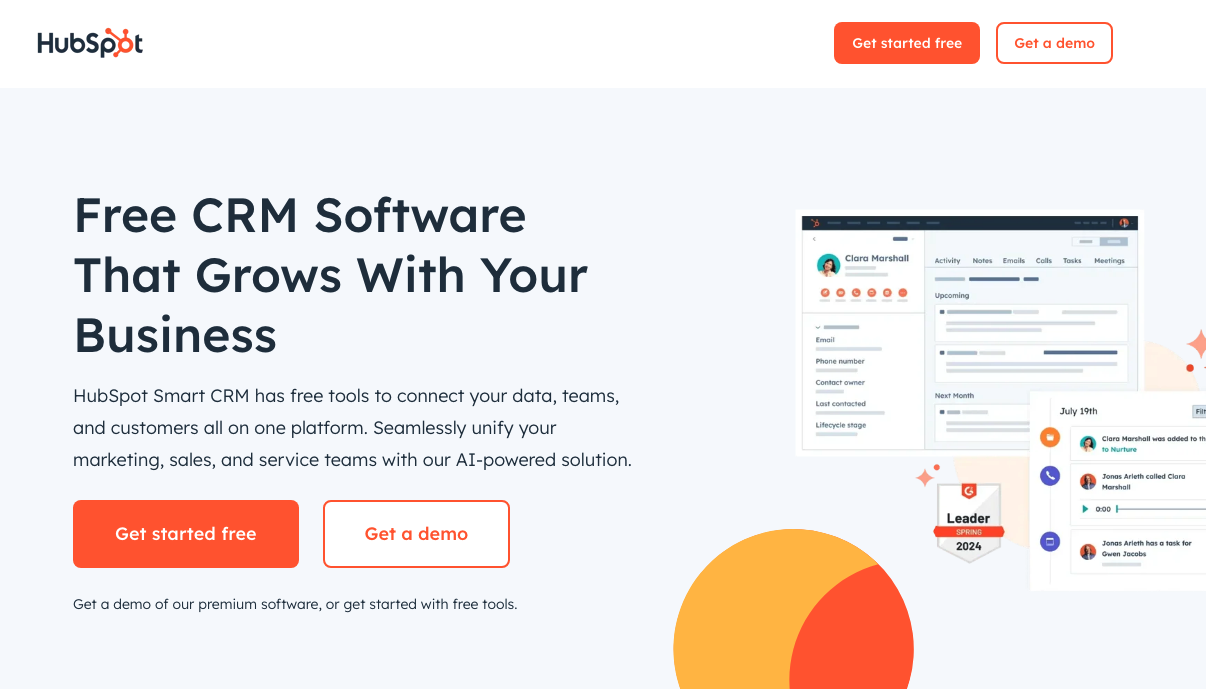
Key Features:
- Contact and lead management
- Sales pipeline tracking
- Email tracking and notifications
- Reporting dashboard
- Integration with HubSpot’s marketing and sales tools
Best For: Small businesses, startups, and sales teams
2. Zoho CRM
Zoho CRM offers a free plan with basic features suitable for small businesses looking to streamline their sales and marketing processes. Zoho CRM integrates well with other Zoho tools, making it an excellent choice for companies already using the Zoho ecosystem.
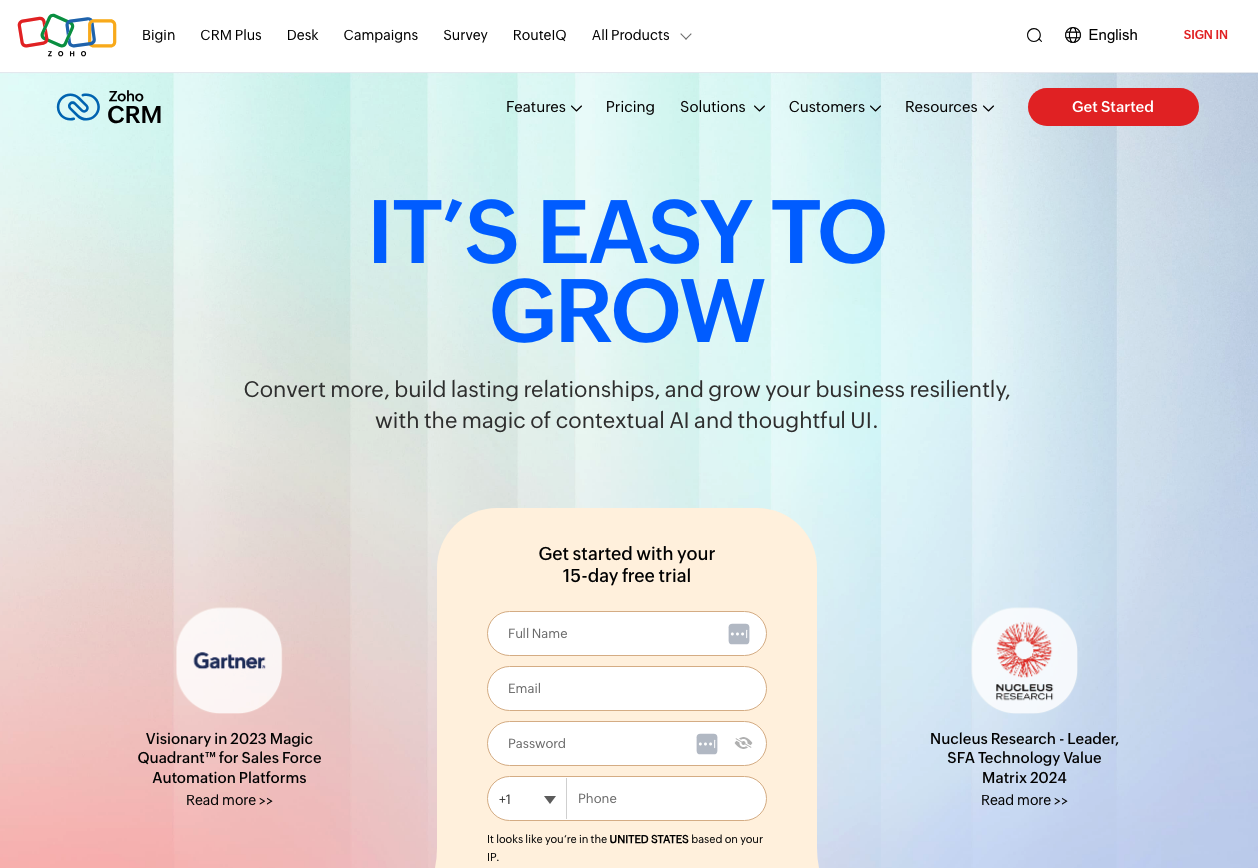
Key Features:
- Contact and lead management
- Workflow automation
- Task management
- Social media integration
- Email marketing tools
Best For: Small businesses, startups, and freelancers
3. Freshsales (Freshworks CRM)
Freshsales by Freshworks offers a free version that is well-suited for startups and small businesses needing to manage their sales pipeline and customer relationships. The CRM comes with AI-based lead scoring, which helps businesses prioritize their prospects efficiently.
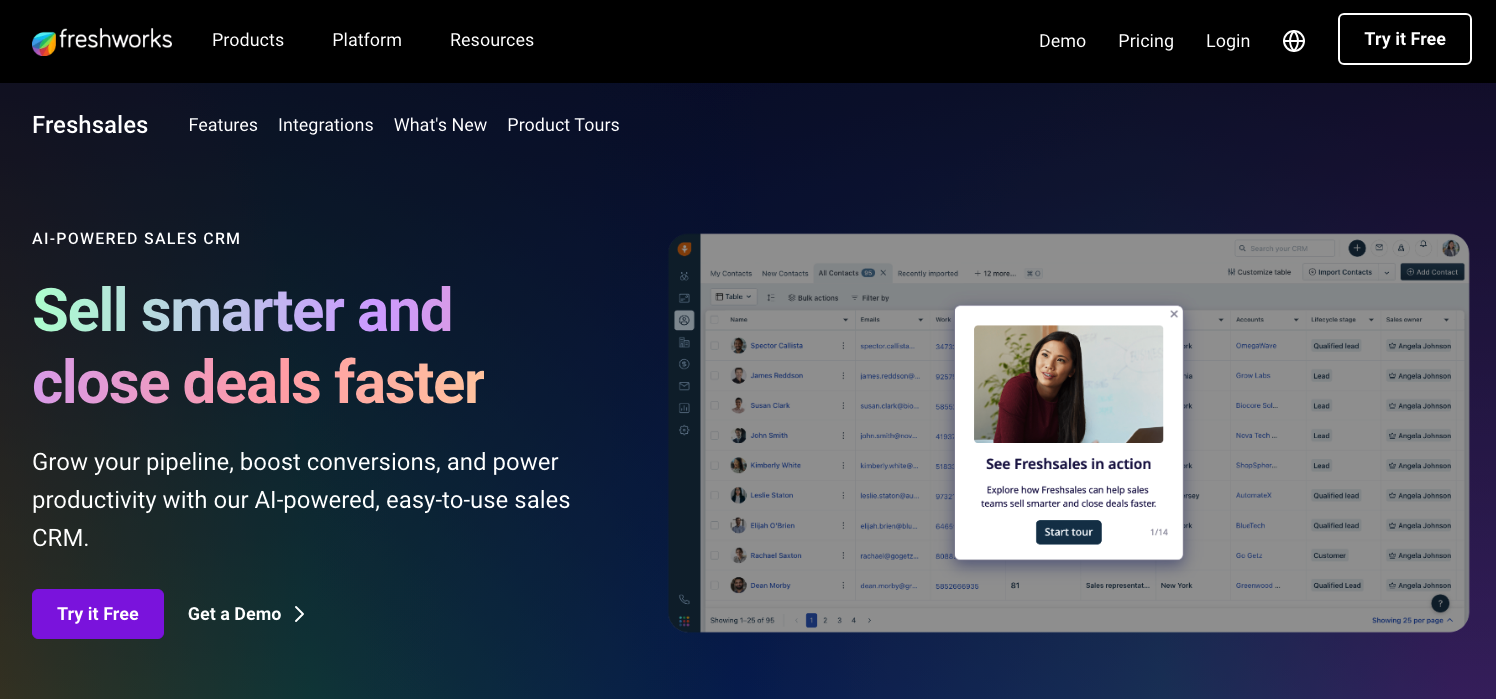
Key Features:
- Contact and account management
- AI-powered lead scoring
- Built-in email and phone
- Deal and pipeline management
- Workflow automation
Best For: Small sales teams and growing businesses
4. Bitrix24
Bitrix24 is a comprehensive platform that combines CRM with project management, making it an excellent choice for teams that need both functionalities. Its free plan supports up to 12 users and offers a wide range of CRM features for managing leads and sales pipelines.
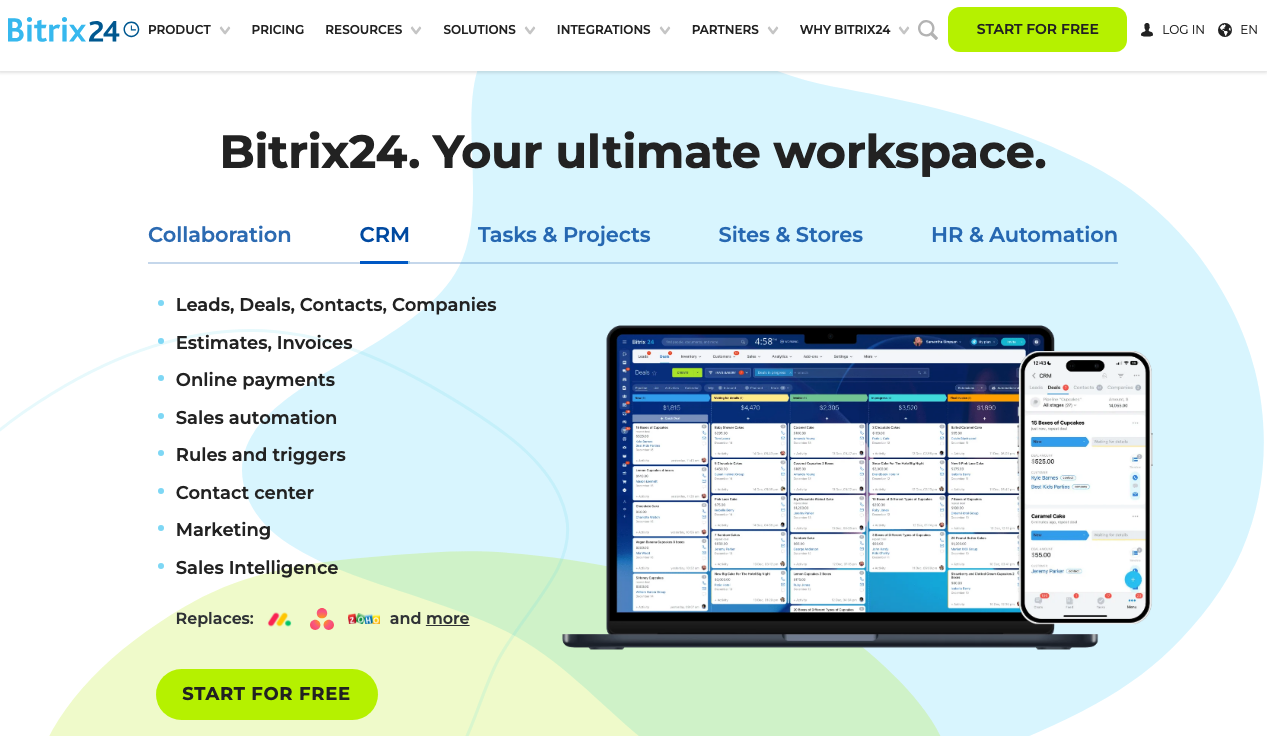
Key Features:
- Contact and deal management
- Email marketing
- Task and project management
- Workflow automation
- Document management
Best For: Small to medium-sized teams needing project management integration
5. Insightly
Insightly provides a free CRM with core functionalities such as lead and contact management, project management, and email integration. It’s a versatile tool that combines CRM and project management, making it ideal for companies managing multiple projects.
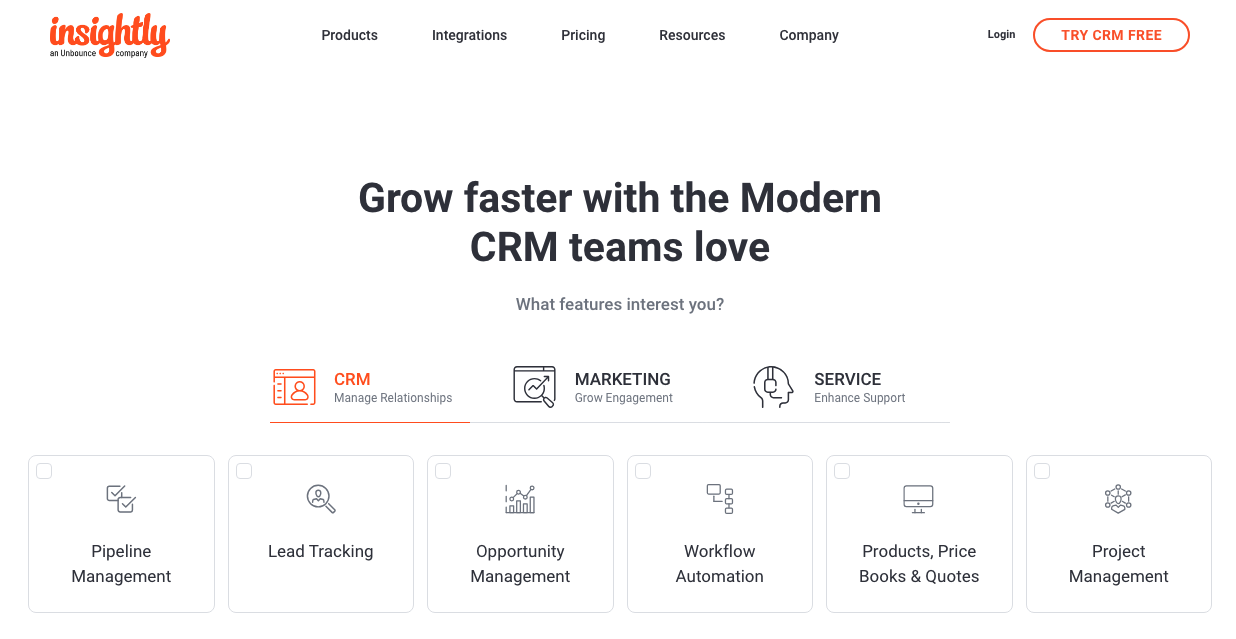
Key Features:
- Contact and lead management
- Task and project management
- Email templates and tracking
- Workflow automation
- Customizable dashboards
Best For: Project-based businesses and startups
6. Agile CRM
Agile CRM offers a feature-rich free CRM solution for small businesses, providing sales, marketing, and service tools in one platform. It supports up to 10 users in its free plan and offers several automation features, making it a great choice for startups.
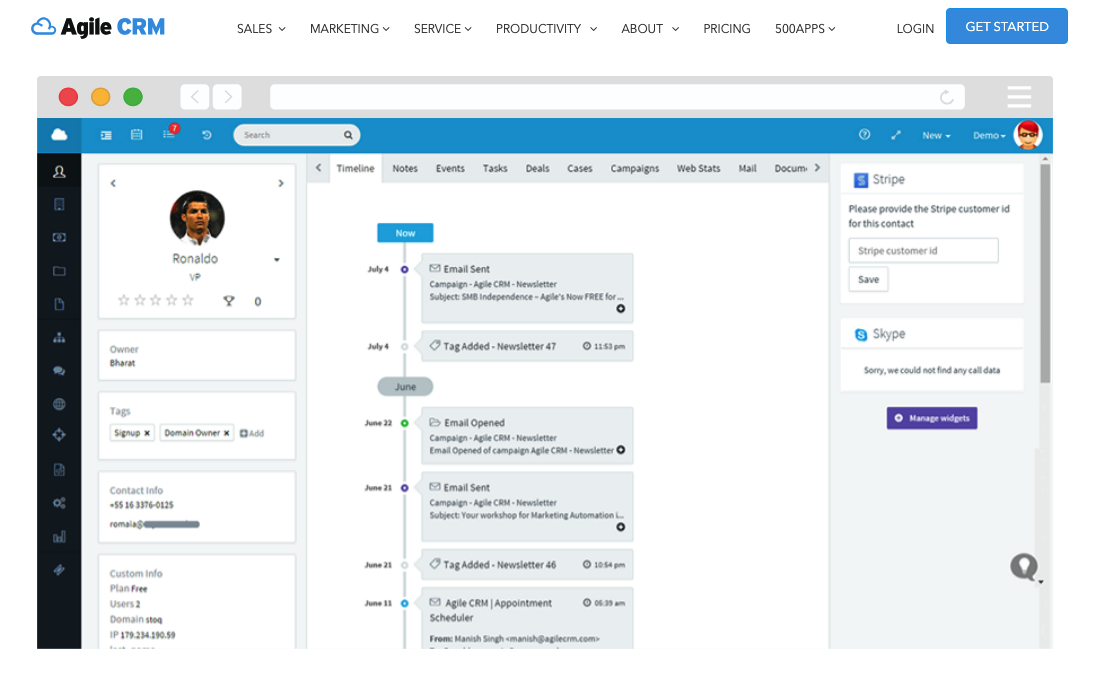
Key Features:
- Contact and deal management
- Marketing automation
- Email campaigns
- Helpdesk and service management
- Appointment scheduling
Best For: Startups, small teams, and service-based businesses
7. Capsule CRM
Capsule CRM is a simple and user-friendly CRM platform focused on contact management and sales tracking. It’s best suited for small teams and individuals who need a streamlined solution for managing customer relationships.
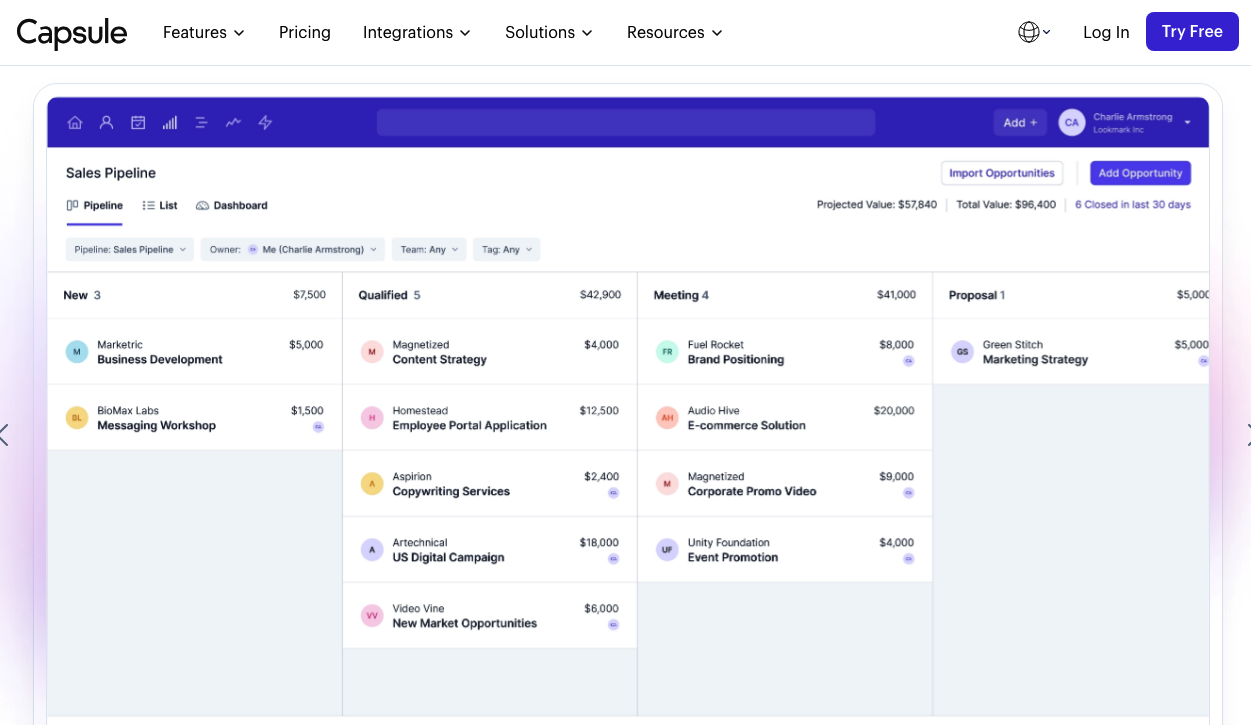
Key Features:
- Contact management
- Sales tracking
- Custom fields and tags for organizing contacts
- Task management
- Integration with popular tools like Gmail and Mailchimp
Best For: Small teams and freelancers
8. Streak CRM
Streak CRM is unique in that it operates entirely within Gmail, making it an ideal CRM solution for teams that rely heavily on email communication. It integrates directly with your Gmail inbox, offering basic CRM functionalities like tracking customer interactions and managing pipelines.
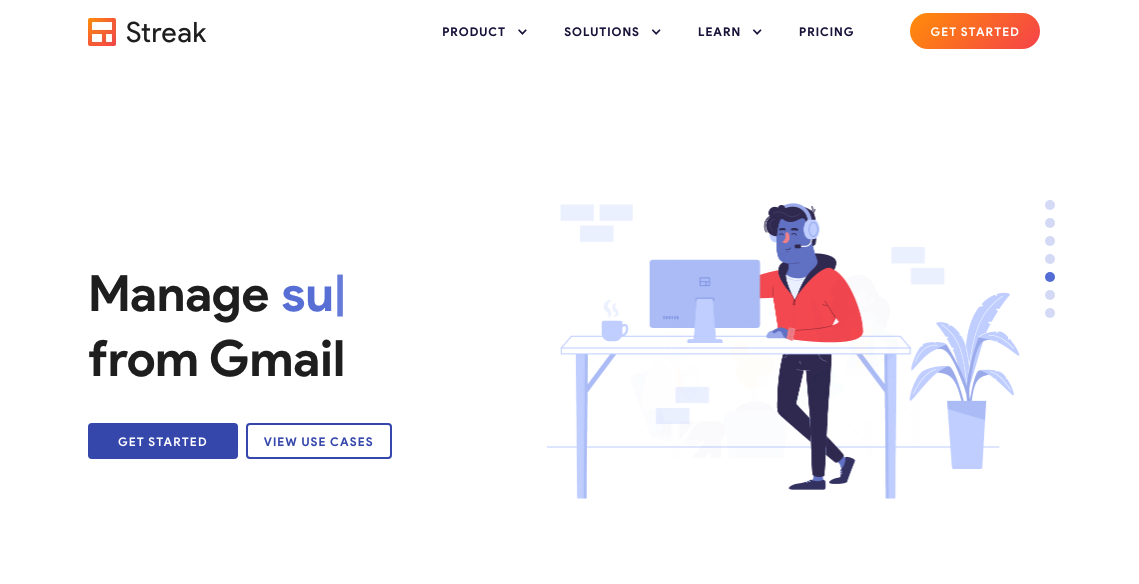
Key Features:
- Built-in Gmail integration
- Contact and deal management
- Email tracking
- Customizable workflows
- Team collaboration
Best For: Teams that work directly in Gmail
9. Spotler CRM
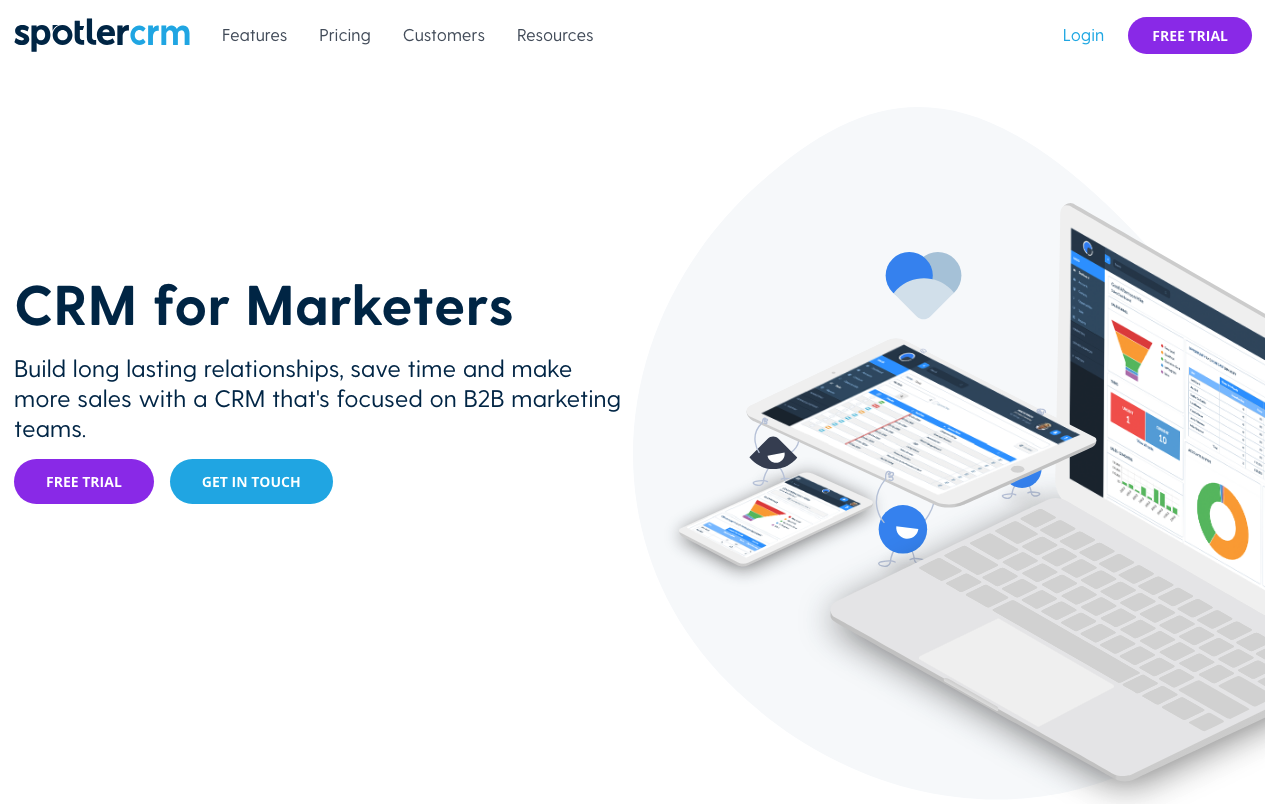
Spotler CRM (also known as Really Simple Systems) is a cloud-based CRM that offers an easy-to-use interface and essential features like contact and lead management. The free version supports up to 2 users and is best suited for small teams that need a simple solution for managing sales processes.
Key Features:
- Contact and lead management
- Email marketing integration
- Customizable reports
- Task management
- Opportunity tracking
Best For: Small teams and freelancers looking for a simple CRM
10. SuiteCRM
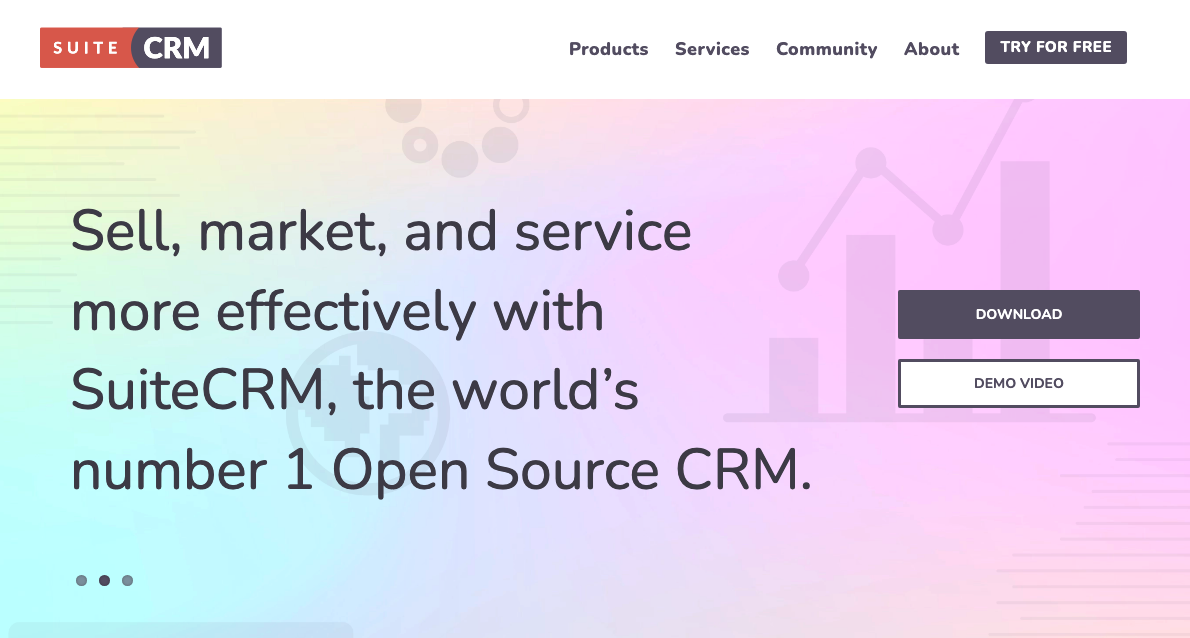
SuiteCRM is an open-source CRM that is completely free, offering robust features for businesses that need customization and flexibility. With its extensive feature set, it’s a good choice for businesses with technical expertise who need a fully customizable CRM.
Key Features:
- Lead and opportunity management
- Sales pipeline tracking
- Workflow automation
- Customizable dashboards and reports
- Project management tools
Best For: Businesses with technical expertise needing a customizable CRM
Conclusion
Choosing the right CRM platform can significantly enhance your business’s ability to manage customer relationships, streamline sales processes, and boost productivity. These top 10 free CRM platforms offer a wide variety of features suitable for different business sizes and industries. Whether you are a small business, startup, or freelancer, there’s a free CRM on this list that can meet your needs.
Share this post
Leave a comment
All comments are moderated. Spammy and bot submitted comments are deleted. Please submit the comments that are helpful to others, and we'll approve your comments. A comment that includes outbound link will only be approved if the content is relevant to the topic, and has some value to our readers.

Comments (0)
No comment